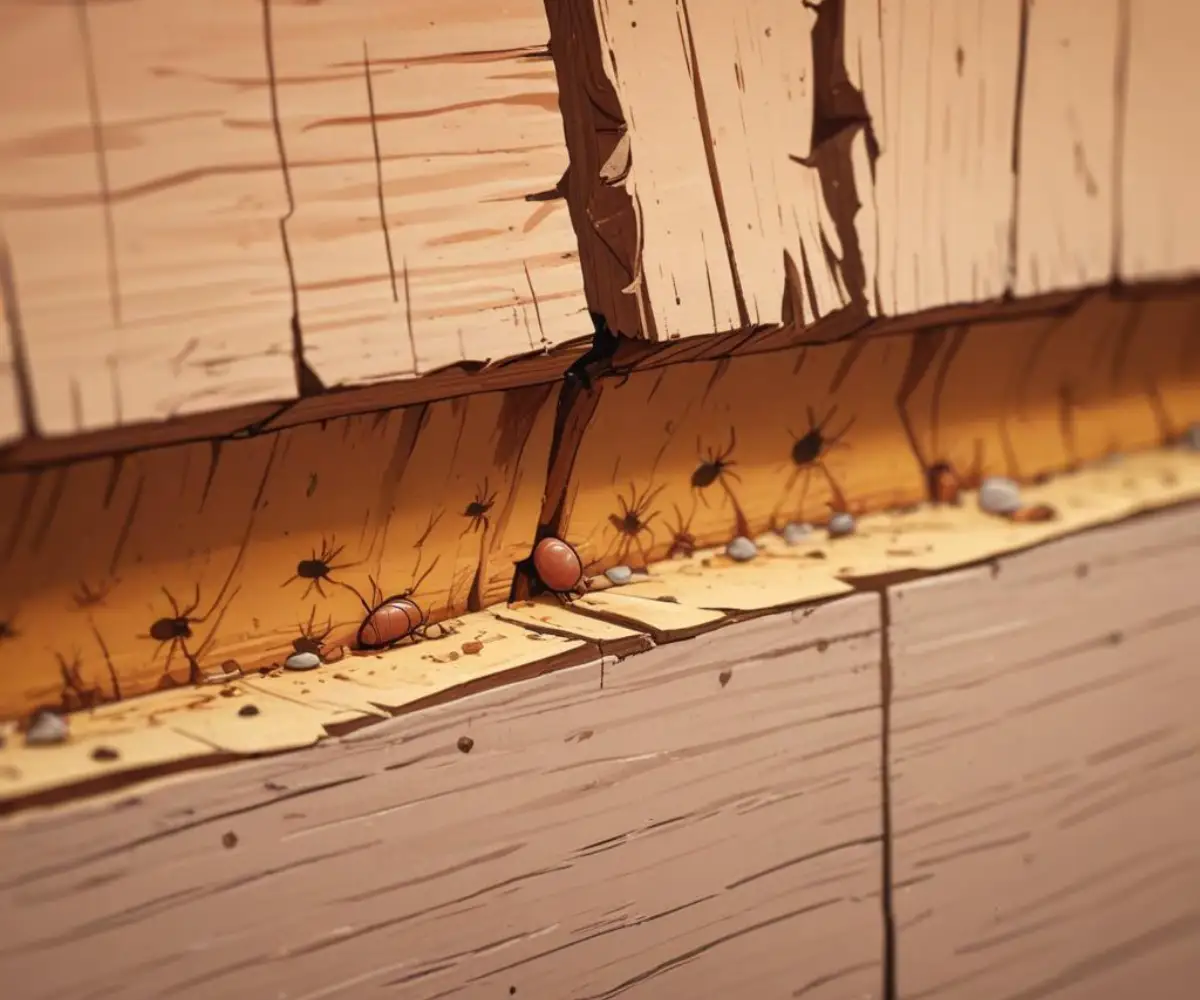Is a Termite Warranty Worth It? The Hidden Costs Homeowners Face
Termites, often called “silent destroyers,” can chew through the wooden structure of a home for years without being detected. The discovery of their damage is a nightmare scenario for any homeowner, leading to costly repairs and significant stress.
This raises a critical question: is a termite warranty the ultimate shield against this threat, or is it an unnecessary expense? The answer isn’t simple and requires a deep dive into what these contracts truly offer.
You'll Learn About
What Exactly Is a Termite Warranty (And What Isn’t It)?
A termite warranty, also known as a termite bond, is a service contract between a homeowner and a pest control company. It is not an insurance policy, a distinction that has critical implications for coverage.
These warranties generally come in two primary forms, and understanding the difference is the most important first step. One type primarily covers future treatments, while the other includes repairs for new damage.
The Two Critical Types of Termite Warranties
The most common point of confusion for homeowners is assuming all warranties cover damage repairs. Most standard contracts only cover re-treatment, leaving you to pay for repairs out of pocket.
A treatment-only warranty promises that if termites return during the contract period, the company will re-treat the home at no additional cost. A repair-and-treatment warranty is the premium option, covering both re-treatment and the cost of repairing new termite damage, subject to the contract’s limits and exclusions.
| Feature | Treatment-Only Warranty | Repair & Treatment Warranty |
|---|---|---|
| Primary Function | Covers the cost of re-applying termiticide if termites reappear. | Covers both re-treatment and repairs for new termite damage. |
| Damage Coverage | No. Does not pay for any wood or structural damage. | Yes. Pays for the repair of new damage, up to a specified limit. |
| Annual Cost | Lower (Typically $250 – $500) | Higher (Typically $400 – $1,000+) |
| Best For | Homeowners in low-risk areas or those on a tighter budget seeking basic protection. | Homeowners in high-risk areas (like the Southeast US) or those seeking maximum peace of mind. |
| Common Pitfall | Homeowners mistakenly believe they are covered for damages. | Often includes a deductible and numerous exclusions that can void coverage. |
The Real Cost of a Termite Warranty: Breaking Down the Numbers
Securing a termite warranty involves more than just the annual renewal fee. The process begins with a comprehensive initial inspection and treatment, which can be a significant upfront investment.
The cost for this initial service can range from $700 to over $2,500. This price depends heavily on the size of your home, the type of foundation, and the extent of any existing infestation.
After the initial treatment, you will pay an annual renewal fee to keep the warranty active. This fee, typically between $300 and $700, covers the yearly inspection and maintains your protection under the contract.
The Hidden Dangers: Reading the Fine Print of Your Warranty
A termite warranty document is filled with legal language designed to protect the pest control company. The most critical section for any homeowner to understand is the list of exclusions and responsibilities.
Failure to meet your obligations as a homeowner can quickly render your expensive warranty void. This is where many disputes between homeowners and pest control companies arise.

Exclusions That Can Invalidate Your Coverage
Nearly every termite warranty includes a clause about “conducive conditions.” These are conditions around your home that attract termites or inhibit the effectiveness of the chemical barrier.
Creating or allowing these conditions to persist is often grounds for the company to void your warranty. Common examples include stacking firewood against the foundation, having leaky faucets or pipes, or allowing mulch to be in direct contact with your home’s exterior.
Furthermore, any structural modifications to your home, like building a new deck or pouring a concrete patio, can disturb the chemical barrier. You are typically required to notify the company before such work so they can properly treat the new area, often at an additional cost.
The Transferability Trap: Selling Your Home
A transferable warranty can be a valuable selling point for your home. However, not all warranties are transferable, and those that are often come with fees and specific procedures.
The process usually requires an inspection and a transfer fee paid by the new owner. If these steps are not followed precisely, the warranty can be voided, leaving the new homeowner unprotected.
Mandatory Annual Inspections: What They’re Really For
The annual inspection is a core component of your warranty. While it serves to check for new termite activity, it is also the company’s opportunity to document any conducive conditions around your property.
If the inspector finds a leaky spigot or wood debris near the foundation, they will note it. If you don’t correct the issue and termites later appear in that area, the company may deny your claim based on your failure to maintain the property as required by the contract.
So, Is a Termite Warranty Worth It? A Risk vs. Reward Analysis
The decision to invest in a termite warranty depends entirely on your specific circumstances, risk tolerance, and the quality of the contract being offered. It is not a one-size-fits-all solution.
For many, the consistent annual fee provides invaluable peace of mind. For others, the money might be better spent on proactive prevention and independent inspections.
Scenarios Where a Warranty Is Almost Essential
If you live in a high-risk region, such as the warm, humid states in the Southeast, termite pressure is a constant threat. In these areas, a comprehensive repair warranty is often a wise investment.
Homes with a known history of termite problems are also strong candidates for a warranty. Likewise, certain mortgage lenders, particularly for VA loans, may require a termite bond to be in place before approving a loan.
The structure of your home also plays a significant role. For instance, properties with crawl spaces can be particularly vulnerable to moisture, a major termite attractant. Managing this moisture is key, and some homeowners find that exploring solutions reviewed in articles on Orkin crawl space encapsulation is a necessary part of their overall termite prevention strategy.
When You Might Reconsider a Termite Warranty
In colder, northern climates, the risk of subterranean termite infestation can be significantly lower. Homeowners in these regions might find that the annual cost of a warranty outweighs the potential risk.
A proactive homeowner who is diligent about maintenance can also reduce their risk substantially. If you consistently eliminate conducive conditions and hire a professional for an independent inspection each year, you may not need the contractual obligations of a warranty. Evaluating the value proposition of major pest control services is crucial; understanding if, for example, Terminix is worth it for your needs involves weighing their warranty terms against their service costs.
The Alternative to a Warranty: Proactive Home Defense
Instead of locking into a long-term contract, you can opt for an “a la carte” approach to termite prevention. This puts the responsibility in your hands but can be more cost-effective.
Start by hiring a reputable pest control professional for a standalone annual inspection. This gives you an expert assessment without the long-term commitment of a warranty.
The most important step is eliminating conditions that invite termites. This includes fixing all moisture sources, as damp environments are crucial for termite survival. Issues in a crawl space, for example, can be a magnet for pests, and understanding options like those detailed in Orkin DryZone reviews can be a part of a holistic defense strategy.
Maintain a one-inch gap between soil or mulch and any wood portion of your home. Ensure gutters and downspouts divert water far away from the foundation and seal any cracks in the foundation wall itself.
The Final Verdict: An Investment in Protection or a Waste of Money?
A termite warranty is a service contract that acts like an insurance policy against a specific threat. Its value is deeply personal and depends on your home’s risk, your budget, and your willingness to read and abide by the contract’s fine print.
Ultimately, the decision comes down to a careful evaluation of the contract itself. Never sign a termite warranty without reading every single line, paying special attention to the exclusions, your responsibilities, and the claim procedure. The best warranty is the one that provides clear, comprehensive coverage with a reputable company to back it up.

